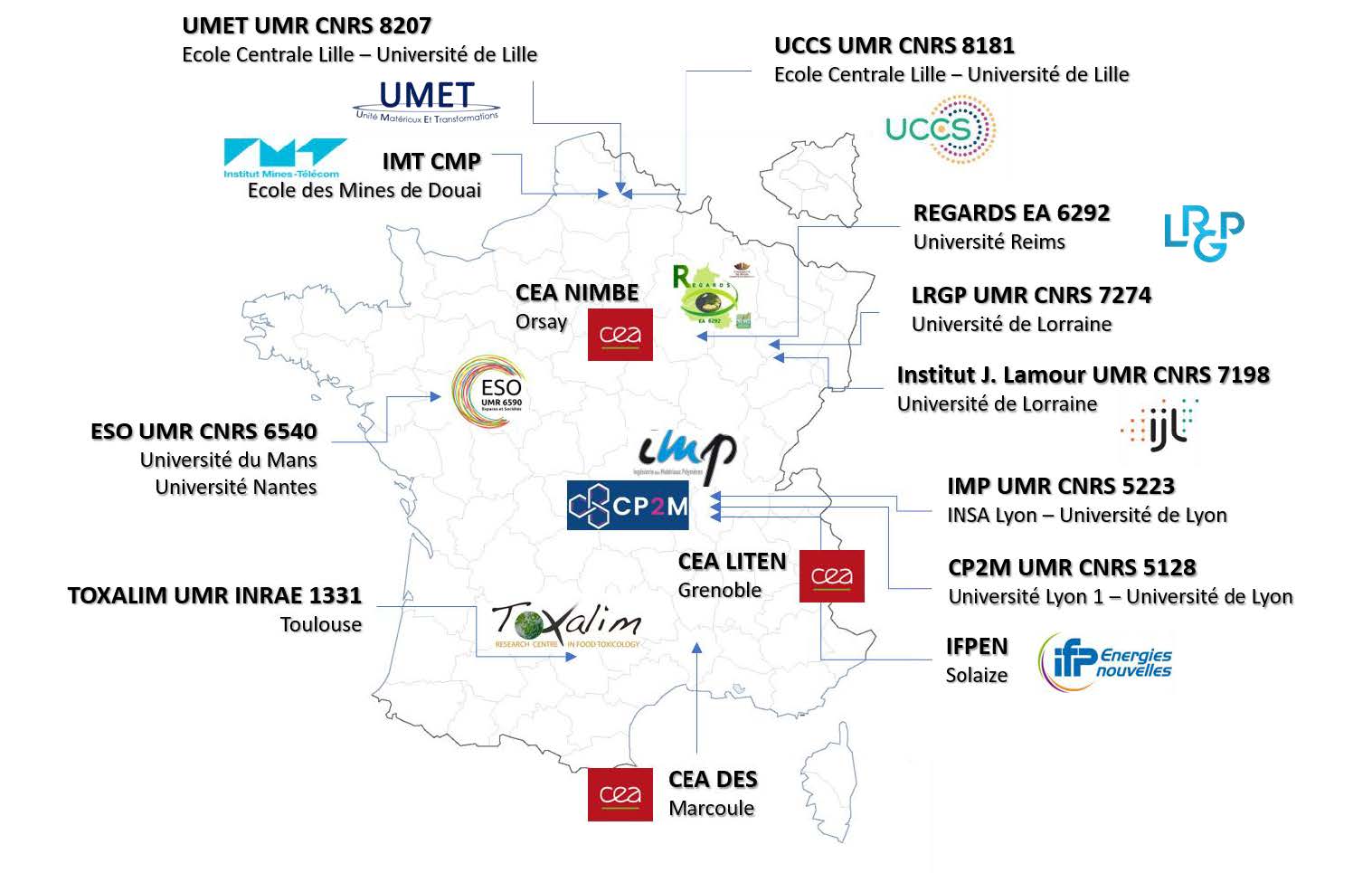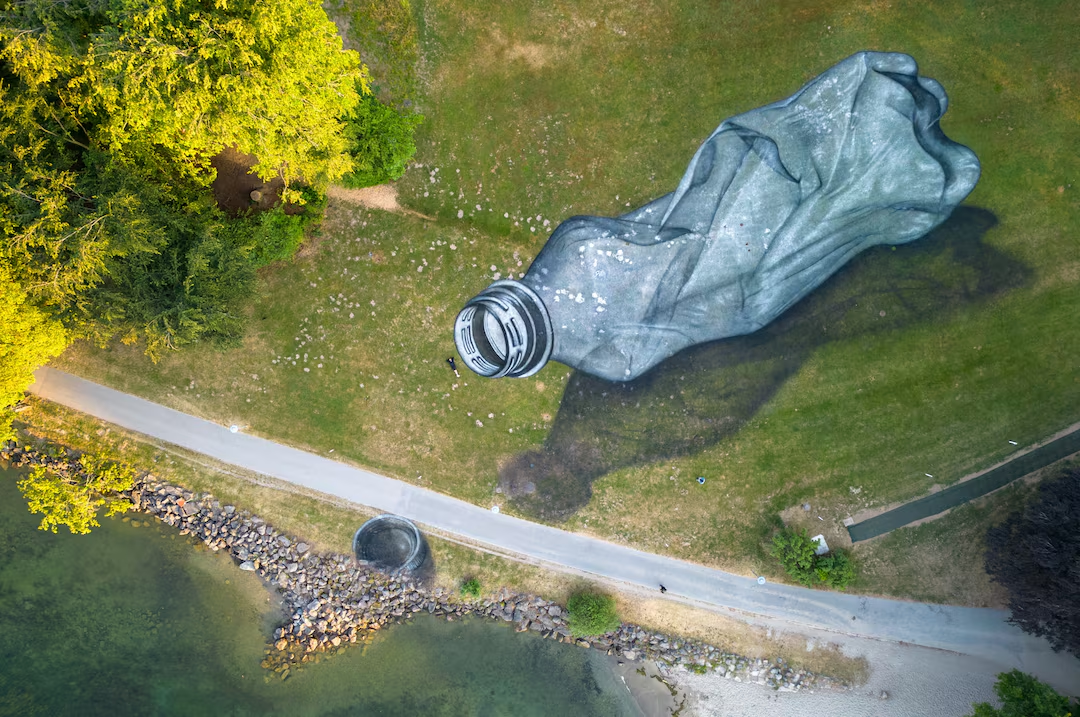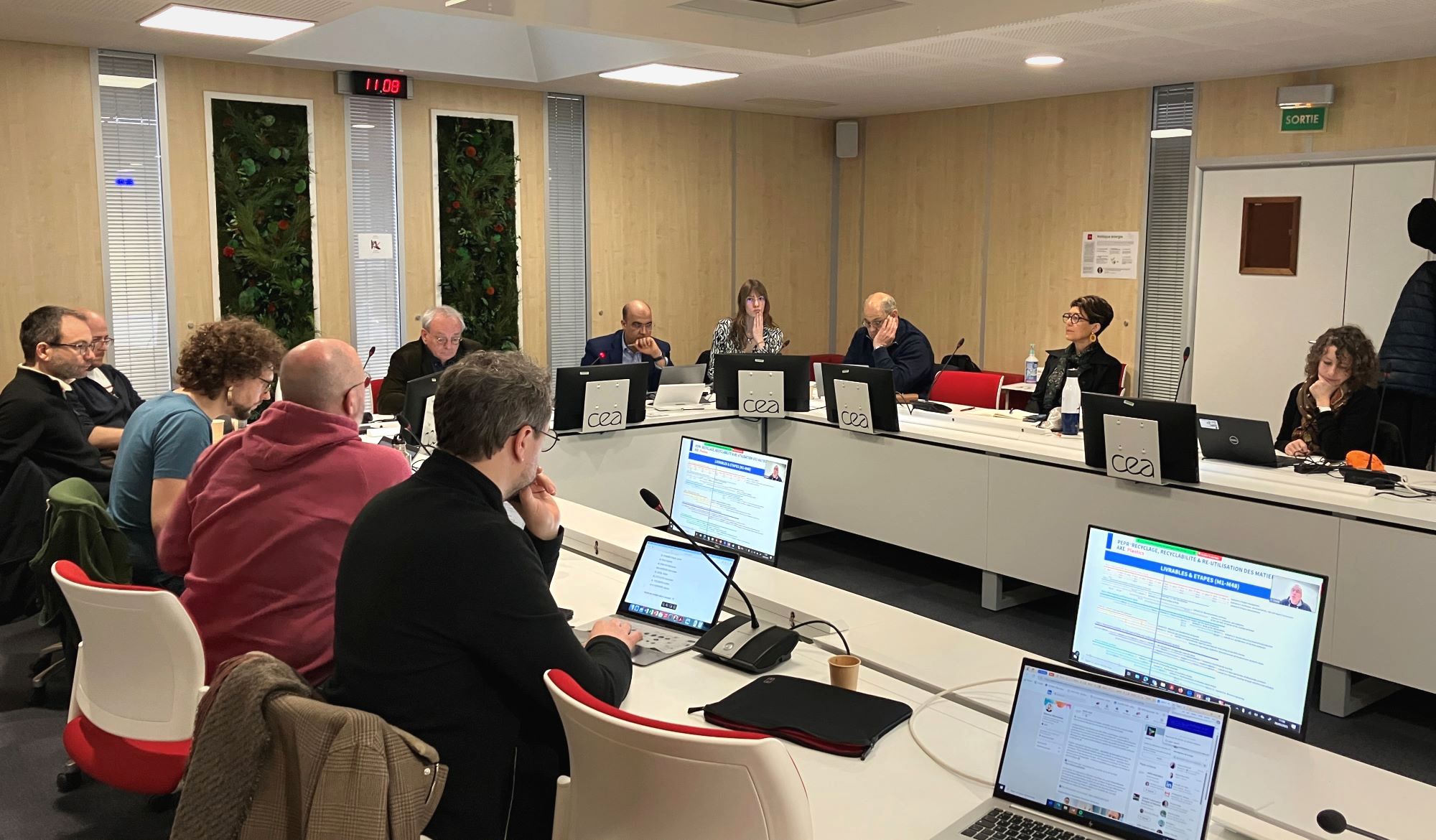
Plastics axis
Excerpt
Project : Plastics, recycling, recyclability and reuse of polymer/plastics
Khalid Lamnawar (INSA Lyon)
Contact : khalid.lamnawar@insa-lyon
Sophie Duquesne (UMET, Université de Lille)
Contact : sophie.duquesne@centralelille.fr
Launch date : 01/06/2023
Reference : ANR-22-PERE-0004
In the context of the circular economy, it is crucial to develop new concepts to improve the recycling of post-consumer polymer materials and the incorporation of recycled materials into goods and products. The aim is to respond to a major societal challenge: the preservation of resources.
A number of issues concerning plastics recycling were identified during the analysis of the state of the art. Firstly, the presence of contaminants and the disassembly of complex structures appear to hinder the development of mechanical recycling. On the other hand, tertiary or chemical recycling is still in its infancy, and fundamental knowledge in this field is needed to enable its deployment on different scales. Finally, more cross-disciplinary approaches including eco-design, flow analysis and the interplay of players need to be taken into account in all future developments.
Keywords: recycling, recyclability, reuse, polymers, plastics, eco-design, contaminant, disassembly, chemical recycling
Tasks
Our researches
Study and understanding of the structuring of extended producer responsibility (EPR) channels for plastic waste recycling
This action is structured into four sub-tasks:
The first two sub-tasks, led by CEA, focus on life cycle assessment (LCA) and eco-design of plastics. The first involves mapping and identifying existing recycling chains for plastics, based on material flow analysis. It also includes the exploration of two promising channels developed at CEA. The second assesses the environmental impact of the selected recycling chains and highlights the technical parameters influencing the environmental performance of recycling processes. Finally, an eco-design guide and tool will be provided to stakeholders to optimize the environmental footprint of plastics recycling processes.
The third sub-task, led by the University of Le Mans, aims to identify the role of stakeholders and governance in the structuring of new EPR channels (following the AGEC law). It also includes an analysis of the territorialization of these channels and an assessment of their impact on players traditionally involved in reuse. To achieve these objectives, the methodology adopted includes the production of a territorial metabolism of plastics and a mapping of players, supplemented by interviews with players in the sector, enabling us to understand current practices and representations.
The socio-technical system of plastics is strongly influenced by the properties of disposability and recyclability. It is therefore crucial to understand how these characteristics structure and operate plastic recycling channels. The Université de Reims Champagne first identified the archives available in the field of industrial knowledge of plastic production. At the same time, the team is working on a socio-technical mapping of the plastics industry in France. Secondly, it will document a socio-political history of plastics, going beyond simple waste management optimization processes to highlight the economic, social and political dimensions that have shaped the development and use of plastics. Finally, the project will explore options for new ways of financing EPR.
Dismantling and disassembling complex structures
Soon to come
Tertiary recycling (chemical)
Soon to come
Key numbers
Laboratories
Researchers
Total budget
Consortium
Build fundamental knowledge in the field of polymer recycling, so as to make the French scientific community in this field one of the world leaders. These targeted projects will form the backbone of large-scale collaborative projects in France and Europe.
Develop new technologies that create local value, reduce France’s dependence on external resources and boost employment. Various advanced technologies will be considered in the project: 1) solvent extraction (green solvent, subcritical or supercritical conditions); 2- delamination technologies; 3- catalysis for recycling and 4- extrusion/coextrusion for recycling.
To structure the French scientific community in the field of materials recycling by integrating social and human sciences, economics and law, as well as polymerists, engineers, toxicologists and data scientists. The aim is to provide a systemic vision of the possible development of plastic recycling.
Soon to come
Soon to come

Axis news



No news